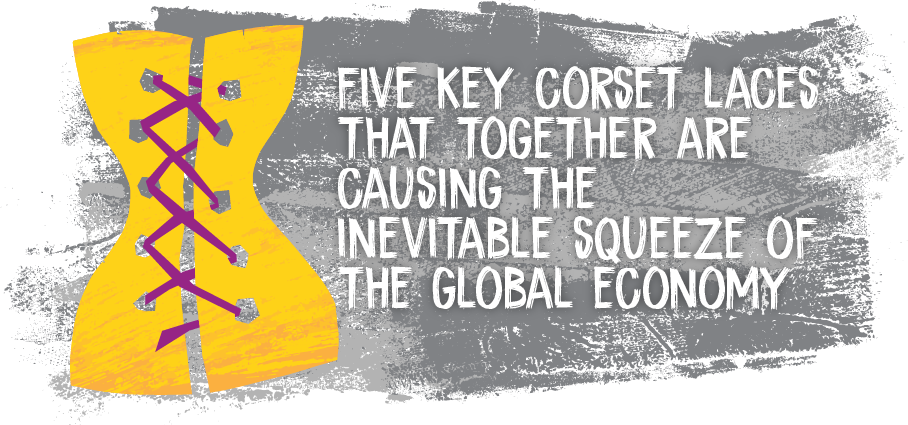Explore the Corset Laces

We have identified five key corset laces that together are causing the inevitable squeeze of the global economy. Each are complex problems in their own right, but as they interconnect they create grand systemic problems for the future as played out in our corset futures.

Monopolies and Network Effects
Monopolies and network effects are not new concepts, but traditionally they have been sufficiently rare and obvious to be curtailed by regulation. No longer. The nature of the digital economy has produced extreme network effects resulting in extreme monopolies. These are winner-takes-all network effects that ‘lock in’ consumers and other businesses, effectively blocking competition. The technological giants, or groups of giants, that wield this monopolistic power have such unprecedented scale and reach that they are now too big to fail and almost impossible to regulate. Learn more
One Planet Earth
There is only one Planet Earth and its resources are finite. Industrialisation has been extremely successful at improving the quality of life for many people, but it has been at the expense of our planet’s health. This goes beyond climate change to issues around agriculture and soil health, availability of water and ecological diversity. Climate shocks such as droughts, floods and fires are becoming more commonplace creating greater uncertainty for both business and personal infrastructure. The growing global population aspires to the consumer-based lifestyle of industrial economies, creating the risk of a perfect storm by 2030, when increasing demand for critical resources – water, food and energy – are unlikely to be met. Learn more
Misrules of the Game
Regulations create the rules of the game by which the economy operates. When they work well, they support a level playing field. When there is no ‘fair play’, or equal opportunity to succeed, regulations risk becoming misrules that can be gamed. Many regulations have been designed for a national physical economy, which makes them inadequate and inappropriate for the realities of the 21st century globalised digital economy. This perceived unfairness undermines trust in the system. Learn more
